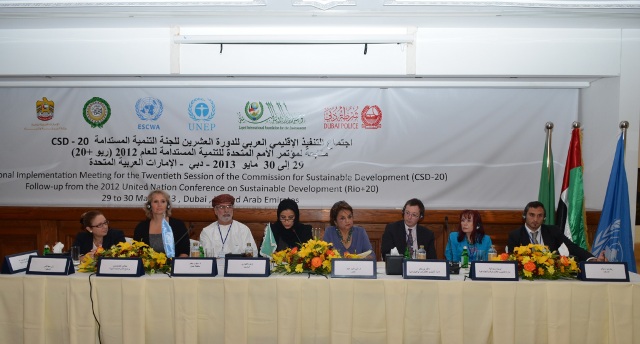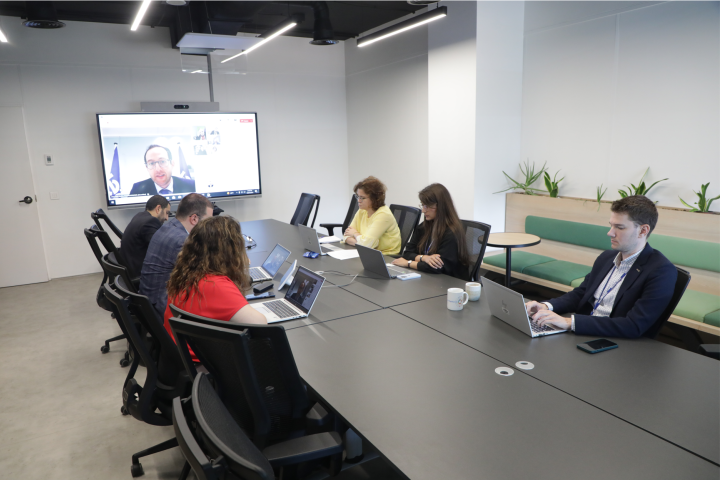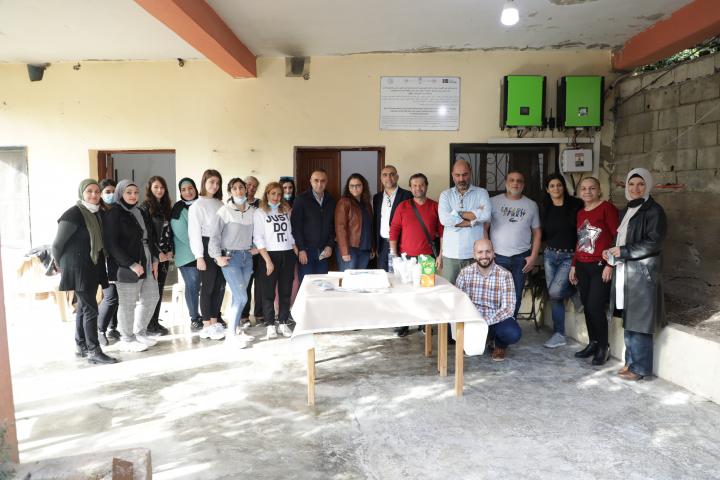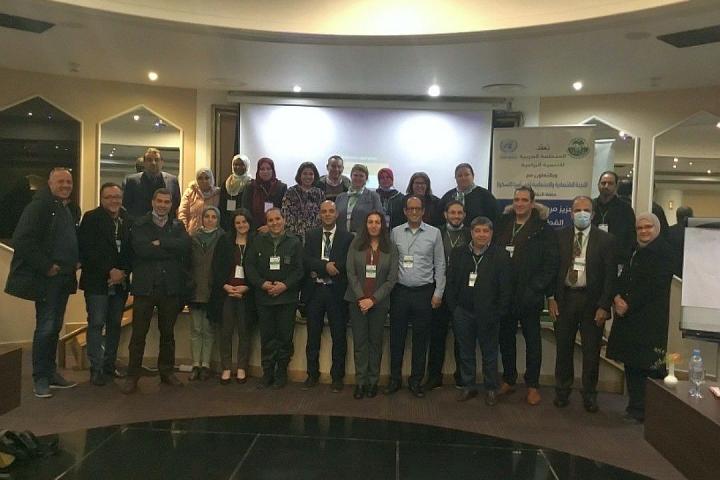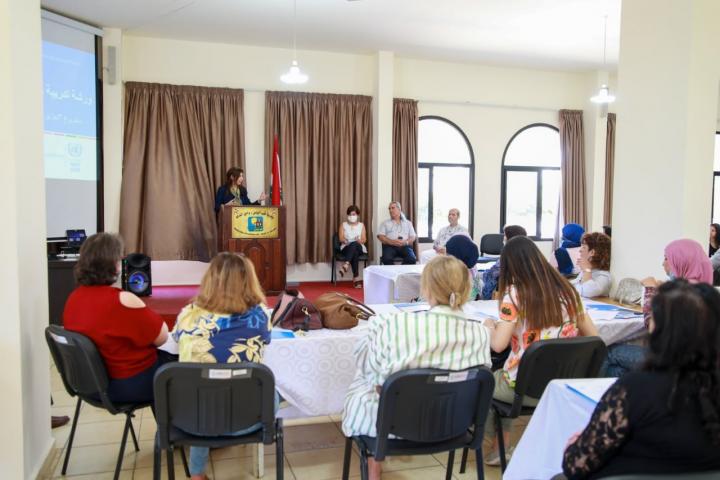Dubai hosted the deliberations on the sustainable development agenda in the Arab region, through the "Regional Arab Implementation Meeting" (RIM), held on 29 and 30 May at the Dubai Police Academy. ESCWA had organized the meeting in partnership with the League of Arab States (LAS), the United Arab Emirates Ministry of Environment and Water, the UN Environment Program/Regional Office of Western Asia (UNEP/ROWA), and the Zayed International Foundation for the Environment. Participating in the meeting were representatives of Arab countries and regional and international organizations, experts and representatives of the main groups from the civil society, and a host of stakeholders concerned with issues of environment and development. The meeting concluded with the "Dubai Statement for Regional Arab Implementation for the Outcomes of Rio+20". Out of their commitment to sustainable development in the Arab region, and placing people at the heart of development, the document signatories asserted their commitment to ensuring sustainable development in the Arab region, and stressed the need to base all future development-related agreements on the Rio principles, notably the seventh principle on common but differentiated responsibilities, underlining the concept of right to development for all peoples and groups, in line with national proprieties, leading to a proper and decent livelihood for everyone. The document recommendations included working on achieving sustainable development in the Arab region within available capabilities, and in compatibility with the region’s vision; calling on Arab countries to diversify their energy sources, including new and renewable energy to achieve sustainable development; and prioritizing programs that target poor and marginalized groups. Director of ESCWA Sustainable Development and Productivity Division Roula Majdalani had said at the opening session of the meeting that the Arab region is facing complex and interrelated challenges at the economic, social, political and environmental levels, which calls for following an approach for the development of integrated policies appropriate to the circumstances of the region. Majdalani enumerated some of these challenges such as freshwater scarcity, the regression and degradation of arable lands, threats facing the region at the food, water and energy security levels. She added that the Arab states also face challenges including the provision of economic opportunities and jobs for youth, as well as the basic services for urban residents where a steady growth is recorded. Majdalani added that the outcomes of Rio+20 offer a promising opportunity to meet these interconnected challenges through a developmental perspective centered on human well-being and environment preservation with its limited resources. The Arab RIM sought to provide a platform for deliberating on the main outcomes of Rio+20 and their implications for sustainable development agenda in the Arab region, and identifying and discussing priorities for implementation as per the priorities and needs of sustainable development in the Arab region. The final meeting report will be submitted to the United Nations Conference on Sustainable Development (CSD-20) in view of ensuring an Arab regional contribution to Rio+20 follow-up.
Commission
Secretariat
Our Clusters
Collaborate
Resources
Key Resources
Updates
Get in touch
